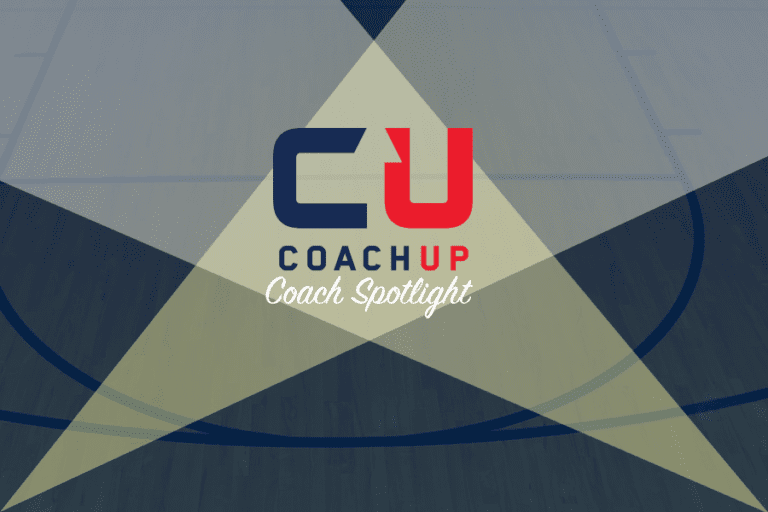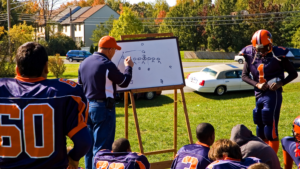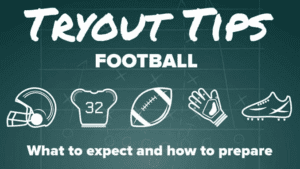Our Coach Spotlight Series is back for another round! Come back every week as we ask some of our most successful coaches on CoachUp their tricks of the trade and how they get the most from their athletes. Whether you’re a coach, an athlete, or a parent of an athlete, we guarantee there are some great points for you to takeaway from our Coach Spotlight Series. This week, we’ve got Coach Poncho Hodges, a former professional athlete turned coach. Hodges has had many fruitful basketball experiences, from attending the University of Colorado to playing an entire pre-season with the Los Angeles Lakers. After that, Hodges took his game overseas for a while as he competed in Israel, France, Turkey, and Japan. Coach Hodges is located in West Hollywood, so look him up if you’re further curious! 
CU: Hi, Poncho! To start off, tell us about yourself and your experience with basketball!
Poncho Hodges: Basketball has been a major part of my life for many years — even in high school, basketball became more and more important for me. After finishing high school, I was blessed to receive a Division 1 scholarship to the University of Colorado. Upon completing my time at Colorado, I was able to have a great 7-year professional career.
CU: What is your coaching style or philosophy?
PH: My coaching style and philosophy revolves around one simple, yet complex word: details. As a coach, it’s my responsibility to correct my clients on the spot in order to fix and develop upon bad habits. In turn, by making sure that the client has a solid foundation, it will ultimately benefit them much more in the long run. Letting bad habits go unchecked will always prove detrimental to the development of an athlete.
CU: What can a client expect from private lessons with you?
PH: Whether the client is new or old, they can always expect my best. For me, it’s often about effort, focus, and intensity — and my athletes leave sessions tired, but with a new-found desire to keep training. Between the intense drills, I also throw in some fun developmental exercises as well, so athletes get a little but of everything from me during each session. In school, you’ll often hear “show, don’t tell” and I feel like this translates to sports as well. You can’t just verbally tell an athlete what to do, you must show them in order to create full success.
CU: Can you describe any big or little wins you’ve had with the athletes you train?
PH: Whenever a client starts training with me, they always begin to grasp a better outlook and understanding of the game. When this happens, I always consider it a win — just being able to point athletes in the right direction is a truly wonderful feeling. Once a client begins to see the game from a clearer mental perspective, their overall performance will also improve.
CU: What do you enjoy most about coaching?
PH: By far, the most enjoyable part of coaching would have to be seeing an athlete’s progress and watching them grow as not only a player, but a person as well. For me, the icing on the cake is when an athlete also realizes that all their hard work has started to pay off and reaching their desired skill level has gotten a little bit closer.
CU: What’s your favorite mantra or saying?
PH: I’m constantly telling my athletes that basketball is 70% mental and 30% physical, so the execution will always prevail over an out-of-control athlete. It may be easy sometimes to be a bigger, faster, or stronger athlete, but those who work hard and play smart will see just as much success over time.
CU: Do you have any specialties within the sport that you coach?
PH: Honestly, my specialty as a coach would have to involve my attention to balance and understanding how your body works and moves while in the heat of the moment. I’m constantly reiterating to my clients that to become a better basketball player, believe it or not, it all starts with balance and footwork.
CU: What’s the most important advice you’ give to other coaches?
PH: At the end of the day, the biggest lesson I’ve learned as a coach applies to the client. Of course, this lesson has taught me that no two athletes are alike, so it’s impossible to take shortcuts or create blanket statements for everyone. Each client, no matter the similarity in skill level, needs to be approached with individualized focus and game-planning! Coach Poncho’s final answer stuck with us long after the interview was over and it’s something to keep in mind for athletes, parents, and coaches of every level. For coaches, listen to Coach Poncho — each athlete is different, so you must teach them as such. If one member of your team is struggling, take the time to help correct those habits. For athletes, remember that everybody learns at their own pace, so don’t feel bad if those left-handed layups are coming along slowly — but don’t be afraid to ask for some extra help. And, finally, for parents, don’t forget that athletes have their own process and speed for learning, so if things don’t go well at first, don’t sweat it. If the athlete is committed and desires to be better, they’ll seek out extra opportunities to get better, but constant criticism and advice might just create more frustration! Thanks again to Coach Poncho! Don’t forget to check out his profile if you’re lucky enough to be in the West Hollywood area! We’ll see you out on the court and here for next week’s Coach Spotlight — good luck and train hard, everybody!
Interested in becoming a coach on CoachUp? Apply here >>
How useful was this post?
Click on a star to rate it!
Average rating 0 / 5. Vote count: 0
No votes so far! Be the first to rate this post.



